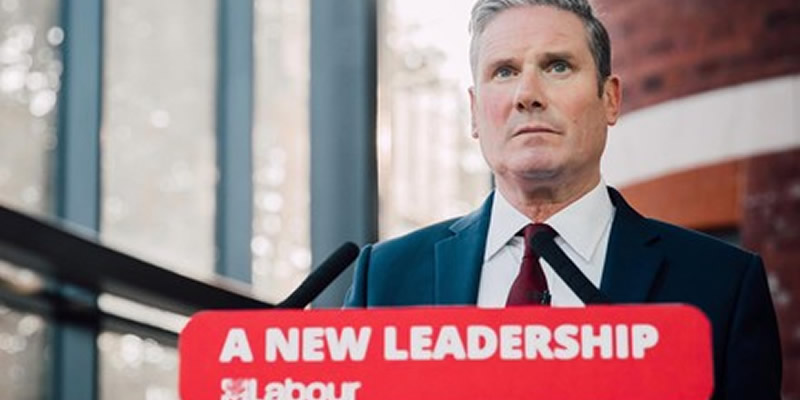James Harvey presents Labour Party Marxists’ recommendations for the national executive committee elections
By the time you read this, Labour Party members will have (hopefully!) received their ballot papers to vote in the elections for the national executive committee. These elections are always seen as a barometer of opinion amongst the ranks of the party’s membership, but the results of this year’s contest will be even more keenly awaited for a number of reasons. For the Starmer leadership it will be a test of the ‘new management’ and yet another opportunity to consign the whole Corbyn period to the dustbin of history. For Labour’s right more generally a strong showing, especially in the Constituency Labour Party section, will further consolidate their grip on the party machine and provide yet more weapons in their continuing witch-hunt against the left.
So far, so familiar. Of course, this analysis of the importance of these elections could have been written at any time in the last five years – or indeed in any of the last 120 years of the party’s existence. Every internal election can be understood as a turning point in Labour’s history, but this NEC vote is not just a routine slugfest – simply yet another round in the never-ending battle between right and left in the party. This is a crucial test for the failed centre-left strategy, especially in the light of the general election in December 2019 and the ‘landslide’ election of Sir Keir Starmer as Labour leader in April 2020. For many, these defeats have been a shattering blow. Nonetheless, what passes for the Labour left goes into these NEC elections with no lessons learnt. The left still believes that the way for the left to defeat the right is for the left to move to the right.
During both the nomination period and the election campaign, much of the focus was on constructing a ‘left slate’ that could mount a real challenge to the right and secure at least six of the nine CLP seats that are up for grabs under the new single-transferable-vote system. This produced a rather convoluted debate about the endless permutations of electoral arithmetic rather than the real political questions that are at issue in the election. Above all, those sections of the Labour left organised under the banner of Grassroots Voice – most notably the Campaign for Labour Party Democracy (CLPD), the Labour Representation Committee (LRC) and Momentum – argued that ‘left unity’ was paramount and that any attempt to stand more than the six candidates given the imprimatur by Grassroots Voice would split the left vote and let in the right.
Both on social media and at various online face to face meetings these arguments have been doing the rounds for months – and for months they have been comprehensively rebutted. Whilst some comrades may be genuinely confused by the new voting system, it is clear that the leaders of the ‘official left’ have deliberately muddied the waters. In an attempt to enforce their monopoly as the approved voice of the Labour left against upstarts such as the Labour Left Alliance (LLA), they refused to even enter into discussions, let alone serious negotiations, to organise a common, principled left slate.
Broad unity
This failure to agree such a slate for the NEC elections tells us what is really going on within the Labour left. Whilst Starmer and the right continue their fierce attacks, expelling socialists on trumped-up charges and shutting down dissent and debate, the official left remains silent. The clue is in the name: whether in the form of Grassroots Voice (GV) or the Centre-Left Grassroots Alliance (CLGA), from which GV emerged, the hopes of the official left remain focussed on building bridges towards a largely mythical ‘centre’. The price that GV pays for its attempts to build such ‘broad unity’ within the party is to completely ignore the central issues of the witch-hunt and the struggle to advance party democracy and defend free speech. Furthermore this unprincipled position is linked to a very flexible definition of the ‘left’, which allows those who have either kept silent about or indeed actively participated in the witch-hunt to receive GV backing. Recent history shows only too well what happens when ‘centre-left’ poachers become witch-hunting gamekeepers after their election.
This strategy of acquiescence is not just a ‘clever’ manoeuvre, but rather reflects a fundamental weakness in the politics and historical practice of the Labourite left. Both its obsession with ‘broad unity’ at all costs and a strategy that places the election of a Labour government centre-stage above all else mean that, unless the Labour left breaks decisively with such sub-reformism, it will continue to remain symbiotically and inevitably entwined with the Labour right. For the sake of such unity and the distant hope of parliamentary success, many on the Labour left remain content to act as a licensed, but impotent, loyal opposition, mounting occasional minor rebellions and continually protesting about a drift to the right, but refusing to really carry the fight to our openly pro-capitalist enemies within. In this way the compromising approach of the organisations of the official Labour left in these elections continues the disastrous strategy of the Corbyn leadership and its refusal to seriously respond to the civil war unleashed by the right.
However, these tendencies towards compromise are not simply a product of the electoral defeat of the Corbyn project and the seemingly unassailable position of the Starmer leadership, but rather reflect deeper problems in the politics of the contemporary left. This is not simply a temporary issue of morale or loss of confidence but points instead to a deep historical pessimism about the potential for building principled and programmatically defined socialist politics. In basing their position around a rather timid set of economistic ‘transitional’ demands, these forms of ‘left politics’ are consciously framed to appeal to a Labourist or social democratic consciousness and thus remain firmly within a capitalist framework. Although these pessimistic politics of self-limitation are widespread on the left, including in the Labour Left Alliance, the experience of Labour Party Marxists comrades shows that it is possible to challenge this dominant common sense and argue instead for a real socialist programme.
As well as raising the nature of the political programme that the Labour left needs to adopt, these elections also pose important questions of future strategy and tactics. The LLA has correctly made the witch-hunt and the advance of party democracy the centre of its campaign. That important fight needs to continue after the election is over. The LLA campaign, in contrast to the silence of the GV candidates on these issues, has struck a chord amongst leftwingers, as can be seen in the number of nominations that the ‘LLA six’ (the alliance’s top-ranked candidates) have received from CLPs.
The LLA was also correct in approaching the CLGA to negotiate a joint slate. That tactic should not be abandoned … well at least for the moment. We are not against horse-trading behind closed doors. Nor are we against hustings and rank and file votes. The key is open, extended and honest debate amongst the Labour left to agree a principled programme. Neither the GV approach of providing a career ladder for grubby aspiring professional politicians, nor the left opportunistically adapting to the right-moving politics of the centre-left, offer any way forward.
Clear tactics
Nonetheless, LPM supports the LLA six as the only candidates openly challenging the continuing witch-hunt and standing up for democracy and free speech in the party. At a time when individual leftwingers continue to be falsely accused of anti-Semitism and fast-tracked out of the party, voting for the LLA list, whatever the severe political limitations of the candidates, gives rank-and-file members the chance to strike a blow against the right and take a stand against the transparently fake left.
Put the LLA six at the top of your ballot paper. Vote for the LLA candidates 1, 2, 3, 4, 5 and 6. A good vote for these comrades would be a real boost. We should continue to make the NEC elections a political campaign against the witch-hunt and for party democracy. That is why urging members to prioritise the LLA six above all other candidates is undoubtedly correct. But we believe it is advisable, in order to maximise the chances of getting at least one anti-witch-hunt comrade onto the NEC, that the LLA ranks its candidates in order of preference, starting with Roger Silverman. He has won 65 CLP nominations. Given the circumstances, an impressive total reflecting a militant rank and file core that, with the right leadership and principled politics, can be strengthened, built and expanded into a decisive, even a determining, force.
Secondly, we should prioritise the GV slate of six over the various individual left candidates not associated with any particular left group, faction or bloc. The criticisms that LLA has made against the way that GV candidates were selected might well be justified, but LPM recognises, as a simple fact, that GV is made up of the most important organisations that for the moment pass for the Labour left. We are convinced that the majority of the supporters of these groups, like us, want to fight back against the right, reject the lies about anti-Zionism equalling anti-Semitism and can, over time, be won to the politics of Marxism.
Prioritising the six candidates of the organised left above individual, unorganised left candidates would send a clear message to those who make up GV that the LLA is serious about wanting to negotiate some kind of joint list. It would also send a clear message to individual left candidates and their supporters: the left needs organisation, not lone rangers.
LPM argues for this approach in the interests of strengthening the LLA and taking forward the struggle to form a politically principled alternative leadership within the Labour Party.
Candidates
We urge Labour members to cast their votes in this order of preference
- Roger Silverman
- Chaudhry Qamer Iqbal
- Carol Taylor-Spedding
- Alec Price
- Ekua Bayunu
- Steve Maggs
- Laura Pidcock
- Yasmine Dar
- Gemma Bolton
- Mish Rahman
- Ann Henderson
- Nadia Jama
- Cameron Mitchell
- Mark McDonald
- Steph Shuttleworth
- John Wiseman
- Katherine Foy
- Crispin Flintoff


